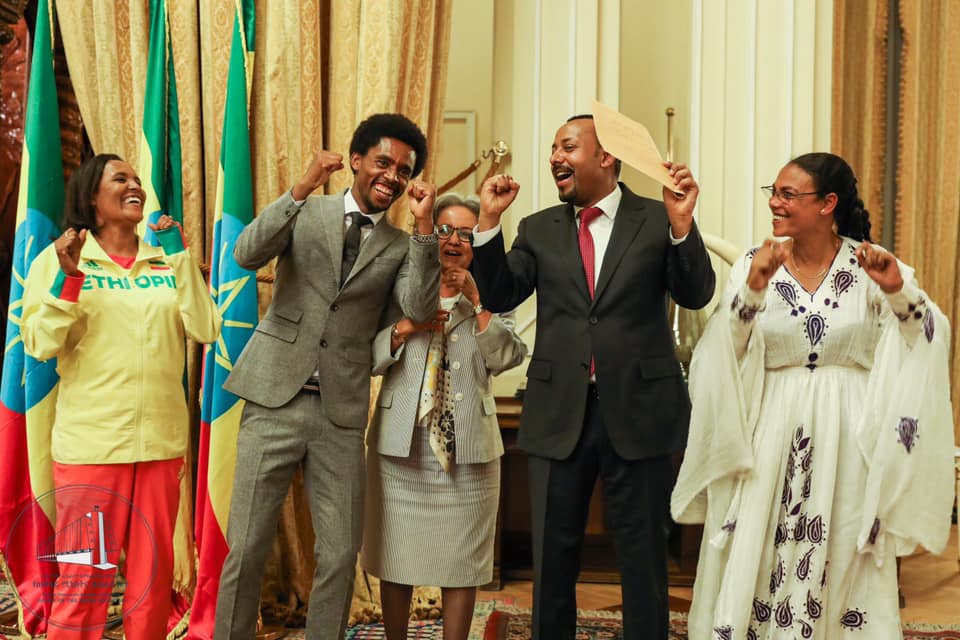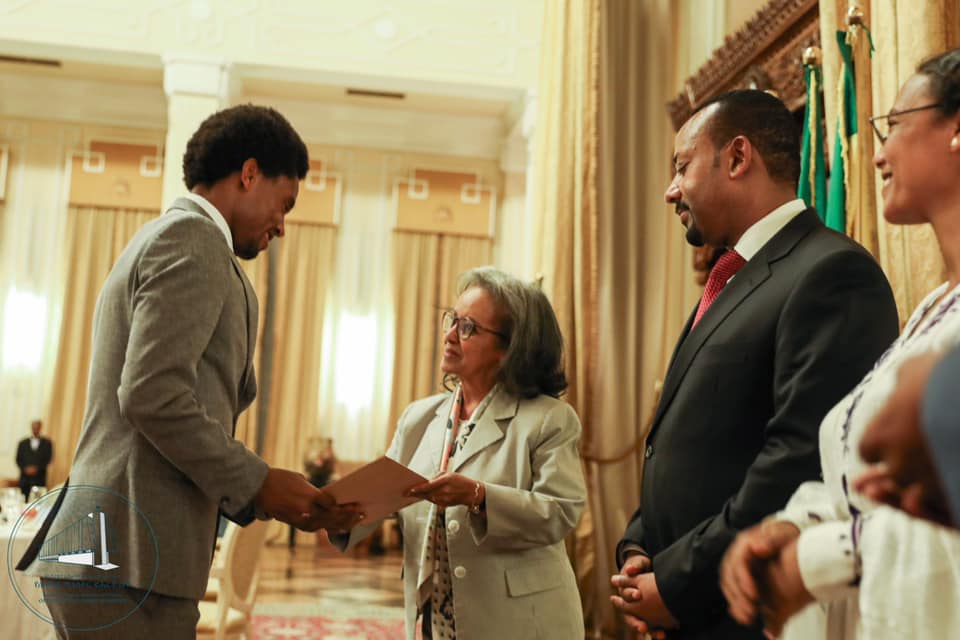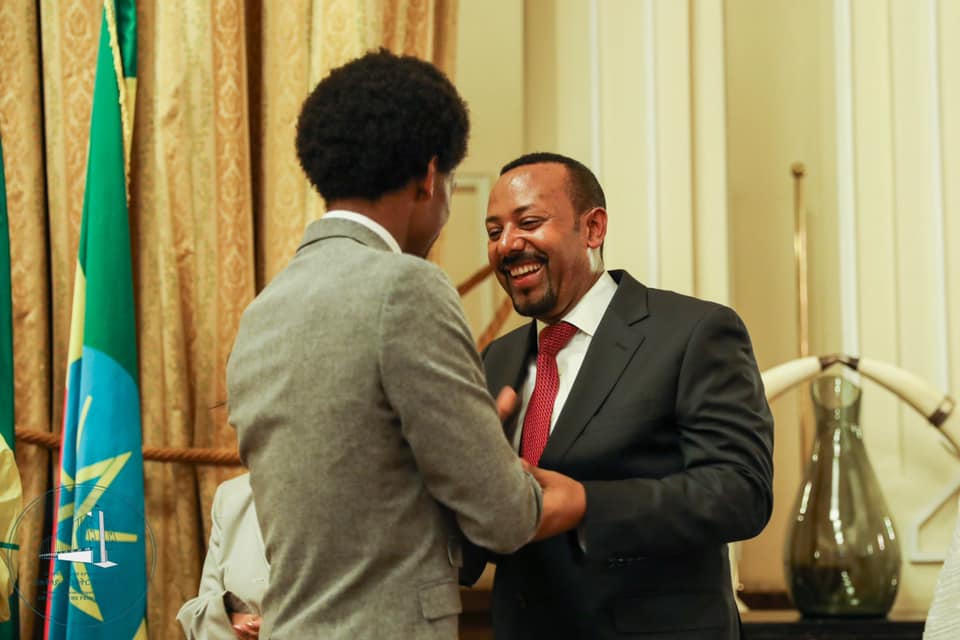The Ethiopian runner, famous for his protest at the Rio Olympics in 2016 against repression in his home country, has been awarded by the Ethiopian government.
The Olympics silver medallist, Feyisa Lilesa, had for two years since 2016, lived in self-imposed exile in the U.S., after raising his arms above his head in solidarity with protesters from Ethiopia’s ethnic Oromo population, who had been suffering a brutal clampdown from the government.
The 28-year-old returned home last October to a hero’s welcome from government officials, alongside family and fans, a move which was largely made possible following the appointment of new Prime Minister Abiy Ahmed.
Six months into his return, Lilesa has been listed in a special category of award recipients at a state dinner event held in the capital Addis Ababa on Tuesday.
The event celebrated Ethiopian athletes, coaches and officials who participated in the 43rd edition of the IAAF World Cross Country Championships, the office of the Prime Minister said in a statement.
“Renowned athlete Feyisa Lelisa, also present at the dinner, was honoured in a special category, as part of the celebratory evening, for his silver medal victory at the Rio 2016 marathon,” the statement added.

According to Ethiopian media, Addis Standard, Lilesa did not receive his prize for his second place victory at the Rio 2016 because he was exiled.
The celebrated athlete received 500,000 birr prize ($17,524.25) from the Ethiopian president, Sahle-Work Zewde, who was also present at the state event.

Lilesa’s crossed-wrist protest, which he made at the finish line, and again on the podium at the 2016 summer games, raised international awareness about the anti-government protests that had been taking place in the Horn of Africa nation.
The Oromo, Ethiopia’s largest ethnic group, as well as, the Amharas, were demonstrating against human rights abuses and violence perpetrated by the security forces. They also demanded equal economic opportunities and political reform in protests that saw thousands getting jailed and many losing their lives in the process.

“My legs were running but my mind was preoccupied by all the suffering that was going on around me,” Lilesa said about why he decided to protest at the games.

The gesture he used in Rio became a symbol of solidarity with protesters, many of whom were young students, according to VOA.
But shortly after the games in Rio, Lilesa felt that it was not safe to come back home, so he used a special-skill visa to come to the U.S., where he settled in Flagstaff, Arizona, the VOA report added. He was there alone for six months before his wife and two children joined him.

While there, he continued training, participating, and running marathons including in London, Bogota, and Tokyo. As violence and disturbances went on in Ethiopia, the athlete told Quartz that he was not going to return home until there was a regime change and “visionary leadership that can garner and develop the resources for the benefit of all, not just a limited few elites who take all for themselves.”
Hailemariam Desalegn, who had been prime minister since 2012, would later resign in February 2018, saying that he sees his resignation “as vital in the bid to carry out reforms that would lead to sustainable peace and democracy.”
Ahmed became the first person from Ethiopia’s largest ethnic group, the Oromo, to become prime minister in April 2018 since the ruling coalition, the Ethiopian Peoples’ Revolutionary Democratic Front came to power in 1991
The 42-year-old, when voted by parliament as the country’s new leader, vowed to ensure good governance and deal with corruption that was having a toll on the country’s economy.
Ahmed has since instituted measures to deal with ethnic conflicts in the country, that have displaced over 2 million people since last year. He has also made attempts to reconcile with several rebel groups in the country.
Last April, Lilesa told Quartz from the U.S. that he was moved by Ahmed’s actions and measures and that he was thinking of returning home. He did so last October to a rousing welcome










